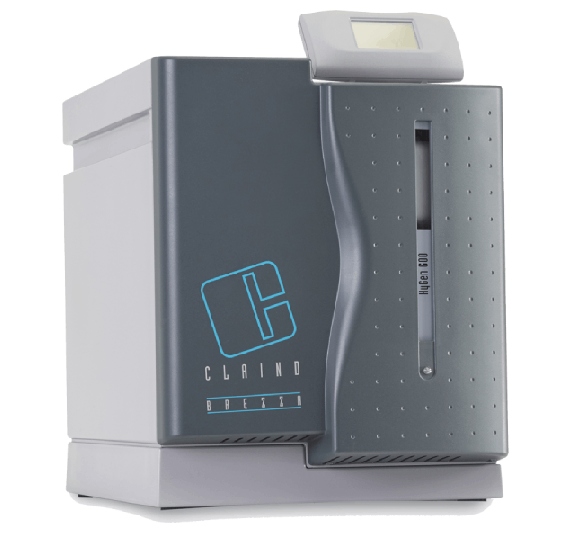
In the ever-evolving world of analytical chemistry, gas chromatography (GC) remains a cornerstone technique, demanding precision and efficiency. As laboratories strive to optimize their processes, the choice of carrier gas has become a critical consideration. With helium becoming increasingly scarce and expensive, many labs are turning to a more sustainable alternative: hydrogen generators. If you're considering this transition, you're in the right place. Let's dive into how Claind's H Series Hydrogen Generators, available through Organomation, can revolutionize your GC workflow.
Before making the leap, it's crucial to assess your lab's readiness. Take a close look at your current gas consumption patterns. Are you running multiple GC systems simultaneously? Do you foresee an increase in sample throughput? The H Series offers models with flow rates of 200, 400, or 600 mL/min, ensuring there's an option to match your needs. Don't forget to consider your lab space – these generators are designed with a compact footprint, but you'll still need to plan for their installation.
Now, let's talk dollars and cents. While the initial investment in a hydrogen generator might seem steep compared to your current gas cylinder setup, the long-term savings are substantial. Many labs report a return on investment within just 1-2 years. Think about the ongoing costs you'll eliminate: no more cylinder rentals, delivery fees, or the hidden costs of staff time spent managing gas supplies. Plus, with on-demand hydrogen production, you're paying only for what you use.
→ Cost Benefit Analysis: Hydrogen Generators vs Gas Cylinders
When it comes to technical considerations, the H Series shines. These generators deliver hydrogen with purity up to 99.9999%, with oxygen levels below 1 ppm – perfect for even the most sensitive GC applications. The adjustable output pressure (30-116 PSI) means you can fine-tune the supply to match your specific GC configuration. And if you're worried about compatibility, rest easy. These generators are ideal for carrier gas in GC, GC-MSD, and "FAST GC" applications.
Safety is paramount when working with hydrogen, and the H Series takes this seriously. These generators are equipped with multiple safety features, including acoustic alarms, automatic production stoppage in case of leaks, and minimal gas storage within the instrument. They even switch to an inert gas automatically if hydrogen production stops. This robust safety profile, when combined with proper staff training, ensures that your transition to hydrogen is not only efficient but also secure.
Choosing the right model is crucial. Consider not just your current needs but your future ones too. The modular design of the H Series allows for parallel connection of up to four stackable towers, providing scalability as your lab grows. Whether you opt for the 200, 400, or 600 mL/min model, you're investing in a system that can grow with you.
Implementing your new hydrogen generator is straightforward, but it does require some planning. You'll need to prepare your site with the proper electrical supply and space. The compact design and clear connection points make setup a breeze. Don't forget to set up your water supply – you can use the removable tank or connect to an external supply with the included pump. Once installed, you'll need to adjust your GC methods for hydrogen carrier gas, which might involve tweaking flow rates and oven temperatures.
Maintenance is refreshingly simple with the H Series. Routine tasks are limited to replacing the deionizing bag and dryer after every 50,000L of hydrogen produced. Just be sure to use high-quality demineralized water to keep your generator running smoothly. And with Organomation's comprehensive support and a 2-year warranty, you can rest assured that help is always at hand if you need it.
As you stand on the brink of this transition, remember that you're not just changing a gas supply – you're upgrading your entire GC workflow. The Claind H Series Hydrogen Generators offer a solution that addresses the key concerns of analytical chemists, from purity and reliability to safety and cost-effectiveness. By making this switch, you're investing in more efficient, sustainable, and economical laboratory operations.
→ How Gas Cylinders can Disrupt Gas Chromatography Sample Preparation
Ready to take the next step? Whether you need a quote or simply have questions about how these generators can benefit your lab, the team at Organomation is ready to help. Don't let gas supply issues hold your research back – embrace the future of GC with hydrogen generators and unlock new levels of efficiency in your analytical processes.
→ Up Next: Everything you need to know about hydrogen generators
→ Up Next: Transitioning from Helium to Hydrogen: What You Need to Know
